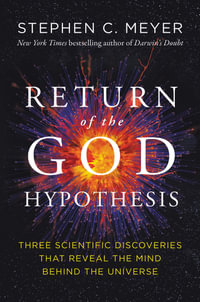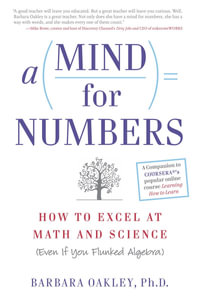| Preface to the First Edition | p. xiii |
| Preface to the Second Edition | p. xv |
| Introduction | p. 1 |
| Empiricism vs. Realism - the Perennial Debate in the Philosophy of Science | p. 9 |
| Comte | |
| Whewell | |
| Mill | |
| Mach | |
| Boltzmann | |
| Poincare | |
| Duhem | |
| Campbell | |
| Hempel | |
| Harre | |
| van Fraassen | |
| Laudan | |
| Cartwright | |
| Hacking | |
| Putnam | |
| Fundamental and Refined Principles: The Core of Modern Science | p. 49 |
| Three Principles Central to Modern Science | p. 53 |
| Refinements of the Principles in Science | p. 62 |
| Four Ways Principles Function with Respect to Science | p. 65 |
| On the Epistemological Status of the Principles of Science | p. 71 |
| Empirical Laws: The Supervention of Experience | p. 73 |
| The Uniformity Principle and Empirical Laws | p. 74 |
| The Substance Principle and Empirical Systems | p. 79 |
| Continuity | p. 81 |
| Necessity and Universality | p. 82 |
| Discovery, Prediction and Technology | p. 83 |
| The Supervention of Experience | p. 85 |
| Empirical Laws Require Explanation | p. 94 |
| Scientific Theories: Closing the Circle | p. 95 |
| Theoretical Reduction and the Closing of the Circle | p. 96 |
| The Substance Principle and Theoretical Ontologies | p. 97 |
| The Causality Principle and Causal Mechanisms | p. 99 |
| The Hypothetical Aspect of Theories | p. 102 |
| Explanation, Understanding and the Limits of Intelligibility | p. 104 |
| The Principle-Theory-Law Model of Scientific Explanation | p. 109 |
| Theoretical Models, Source-Analogues and Abstraction | p. 109 |
| The Substantial, Formal and Causal Aspects of a Theoretical Model | p. 113 |
| Theoretical Systems and the Derivation of Empirical Laws | p. 115 |
| Theoretical Models Can Suggest Experiments But Do Not Determine Their Results | p. 120 |
| The Nominal vs. the Real Aspect of the Subject | p. 122 |
| Idealisation | p. 123 |
| Explanation vs. Prediction | p. 127 |
| The Social Sciences: A Consideration of Economics | p. 130 |
| The Principles of Rationality and Equilibrium | p. 131 |
| The Empirical Facts of Economics | p. 134 |
| Economic Models Are Theories | p. 136 |
| The Substantial, Causal and Formal Aspects of Economic Models | p. 138 |
| Intentional Constructs and Empathetic Understanding | p. 140 |
| The Source and Subject of Economic Models | p. 143 |
| Abstraction and Idealisation | p. 145 |
| Natural Kinds | p. 148 |
| What Are Natural Kinds for Modern Science? | p. 148 |
| Nominal and Real Essences: Key to the Understanding of Natural Kinds | p. 151 |
| Natural Kinds in Biology | p. 153 |
| On Identifying Natural Kinds | p. 157 |
| Sets, Classes, Individuals and Natural Kinds | p. 163 |
| On Difference of Level and the Epistemological Status of Attributions of Nominal and Real Essence | p. 166 |
| Probability and Confirmation | p. 170 |
| General Considerations Regarding Probability | p. 170 |
| Two Senses of the Word "Confirm" | p. 171 |
| Evidential Basis vs. Subject-Matter | p. 172 |
| Methodological Grounds and Inductive Probability | p. 173 |
| Subjective Probability and the Implications of a Probability Claim | p. 174 |
| Knowledge-Relativity and the Propensity Interpretation | p. 175 |
| Nominal vs. Real Probability Determinations | p. 176 |
| Methodological Requirements of Probability Locutions | p. 178 |
| On the Acceptability of Scientific Theories | p. 179 |
| On the Confirmation of Experimental Laws | p. 180 |
| On the Applicability of Scientific Principles | p. 181 |
| Empiricism vs. Realism Revisited | p. 183 |
| The Historical Debate | p. 183 |
| The Supervention of Experience | p. 186 |
| Ontology vs. Epistemology | p. 188 |
| Understanding vs. Knowledge | p. 191 |
| Modern Science and the Future | p. 193 |
| A Particular Enterprise Emanating from Particular Principles | p. 193 |
| The Revolution from Mythopoeic Thought | p. 194 |
| Three Streams in Greek Thought | p. 196 |
| Christianity, Platonism, Aristotelianism and the Scientific Revolution | p. 198 |
| Intellectual and Practical Successes and Problems | p. 203 |
| What Next? | p. 206 |
| Appendices | |
| The Vicious Circle Principle of Human Development | p. 209 |
| The Vicious Circle Principle | p. 210 |
| Application and Corroboration | p. 221 |
| Conclusion | p. 240 |
| The Demarcation of Modern Science from Magic, Astrology, Chinese Medicine and Parapsychology | p. 241 |
| Magic | p. 242 |
| Astrology | p. 248 |
| Chinese Medicine | p. 251 |
| Parapsychology | p. 253 |
| Metaphysics and Worldviews | p. 260 |
| Historical Development of the Non-Physical | p. 261 |
| Modern Science and the Spirit | p. 265 |
| The Physical vs. the Spiritual | p. 266 |
| Conclusion | p. 269 |
| Reply to Criticism | p. 270 |
| The Deductive Model | p. 272 |
| The Perspectivist Conception | p. 274 |
| Principles | p. 280 |
| Realism vs. Empiricism | p. 287 |
| Understanding vs. Knowledge | p. 289 |
| The PTL Model of Scientific Explanation | p. 290 |
| Quantum Mechanics | p. 293 |
| Conclusion | p. 298 |
| References | p. 300 |
| Index | p. 319 |
| Table of Contents provided by Ingram. All Rights Reserved. |
























